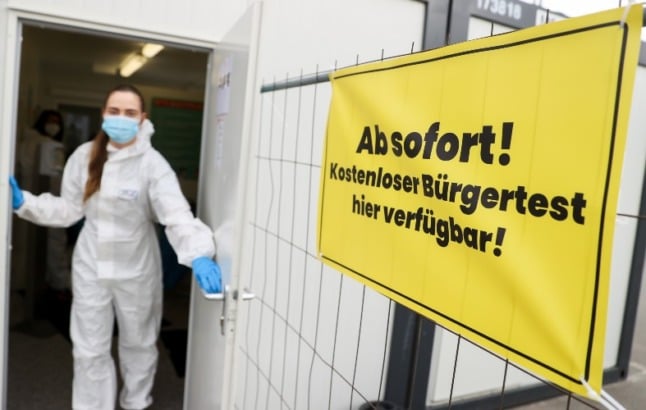“Giving a fair deal to the taxpayer was the reason we abolished free rapid coronavirus tests,” Spahn told the newspapers of the Funke Mediengruppe.
“Everyone for whom vaccines are recommended has now had the chance to get vaccinated,” he continued.
He pointed out that tests in nursing homes, hospitals, schools or at work will still be free of charge.
Testing at rapid test centres, thousands of which have sprouted up across German cities, will no longer be free of charge.
READ MORE: Who will still be able to get a free test starting Monday?
Several doctors’ unions have criticised the move, which will restrict free testing to people for whom vaccines aren’t recommended, starting Monday.
Ulrich Schneider, head of the Parity Welfare Association, told a local newspaper that “wealthy vaccine skeptics, who can afford to pay for testing, will be privileged by the move.”
“Charges for rapid testing will result in fewer people with symptoms getting tested in the future. This will open the door for further transmission of the virus,” said Susanne Johna, head of the Marburger Bund doctors’ union.
€4 billion in costs
Free rapid testing (known as the Bürgertest/citizen test), which which has allowed non-vaccinated people enter restaurants, bars and other venues, has cost the taxpayer close to €4 billion since it was rolled out in the spring.
SPD health expert Karl Lauterbach has stated that ending free testing is not just about cost-saving but is also meant to motivate people to get vaccinated.
“Making tests cost money will lead to many more people being vaccinated because they will want to avoid regular testing,” Lauterbach said.
Back in August, Chancellor Angela Merkel and state health ministers announced that Schnelltests – or rapid antigen Covid-19 tests would cost a fee from Monday, October 11th.
Since March this year rapid tests have been taxpayer funded and therefore free to anyone who wants them – including tourists and visitors to Germany.
Some groups of people, such as children under 12 for whom there is no approved Covid vaccine, will still be entitled to free tests. People who cannot be vaccinated for medical reasons will also continue to get the cost of rapid tests covered by the government.



 Please whitelist us to continue reading.
Please whitelist us to continue reading.
Member comments